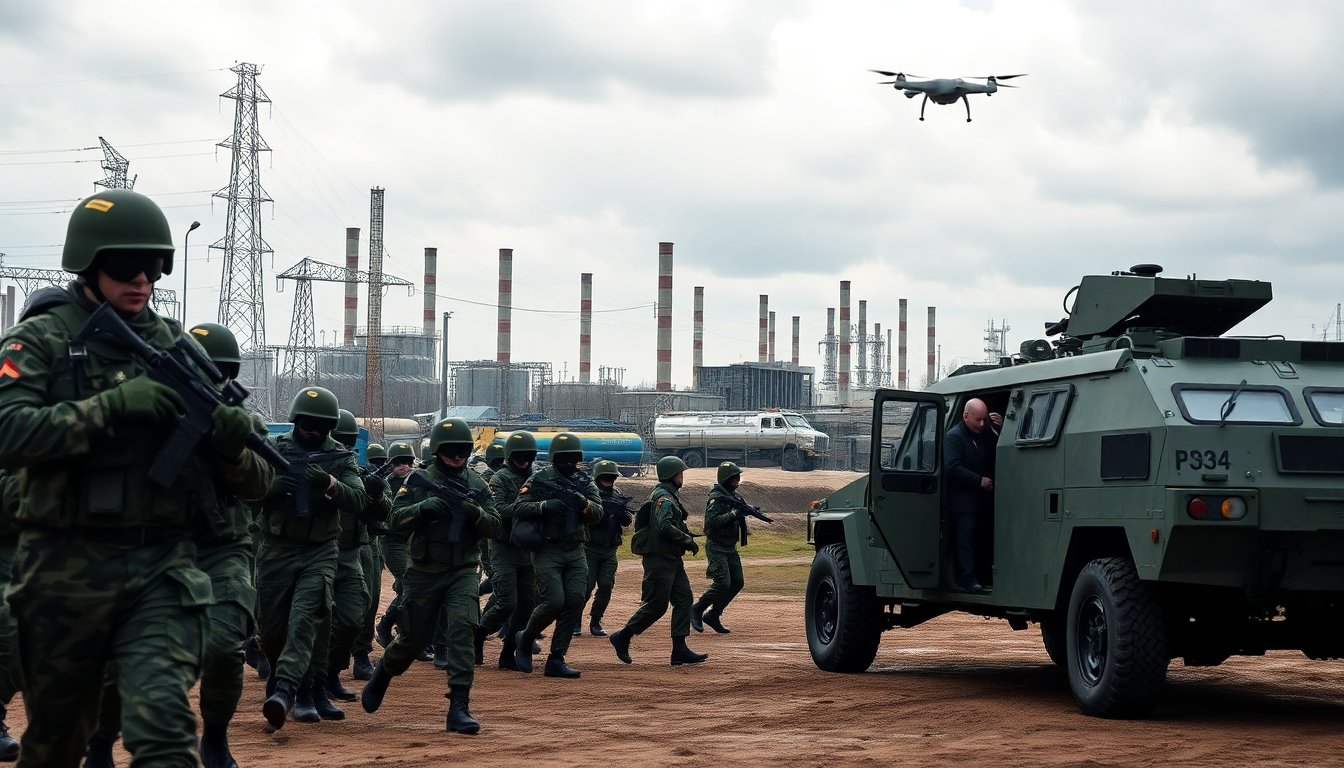Table of Contents
Recent developments in Russia’s military framework have led to the enactment of a law that allows the government to summon reservists for special drills aimed at protecting critical infrastructure. The legislation has received approval from both chambers of the Russian Parliament and focuses on safeguarding essential sectors, including energy, transport, and industry, from threats, particularly those posed by Ukrainian drone attacks.
The number of reservists in Russia has increased significantly, escalating from approximately 2,000 in mid-2025 to around 100,000. This growth aligns with Russia’s military preparations that preceded its invasion of Ukraine. Notably, an executive order from revealed plans for establishing state-owned enterprises composed entirely of reservists, a model already implemented in some regions following the Prigozhin mutiny.
Legislative nuances and expectations
An examination of the new reservist law indicates that it does not explicitly limit the duration of the “special drills” beyond the current 60-day period. While officials have informally expressed their intent to extend this practice, the lack of a defined timeframe raises concerns about the future implications for those involved. Presently, if a reservist chooses to enter active military service under a contract, they are removed from the mobilization reserve lists. However, their recent medical evaluations and training render them suitable candidates for potential future mobilization.
Mobilization without mass call-ups
This new legislation appears to be a strategic move, allowing the military to engage individuals without resorting to widespread mobilization. Internal military presentations suggest that assigning reservists to state-owned enterprises would reduce the necessity to conscript untrained civilians, thereby enhancing operational efficiency. This change indicates a more calculated approach to military readiness amidst ongoing conflict.
Challenges faced by Russian conscripts abroad
For individuals seeking to avoid military service, navigating the landscape in Europe has become increasingly difficult. Russian nationals attempting to escape conscription often struggle to obtain asylum in various EU countries. A notable case involves Daniil Mukhametov, a 21-year-old who attempted to evade his conscription summons in June 2025. After fleeing a train bound for Kaliningrad and traveling through Lithuania, he sought refuge in Finland, only to face deportation. Finnish officials have stated that they are not obliged under UN regulations to consider conscription as valid grounds for asylum, mistakenly asserting that Russia’s mobilization efforts have ceased.
International implications of military actions
The ramifications of military actions extend well beyond Russia’s borders. Ukraine’s Foreign Minister Andrii Sybiha reported that Russia has conducted 23 strikes using the 9M729 ground-launched cruise missile, a weapon integral to the U.S. withdrawal from the Intermediate-Range Nuclear Forces Treaty. This missile has become a point of contention, as its deployment reflects a broader disregard for international agreements and underscores Russia’s ongoing military strategy against Ukraine.
As tensions rise, both Kyiv and Moscow have been actively competing for influence in Washington, D.C. Since Donald Trump resumed the presidency, both leaders have sought to gain favor and influence U.S. policies to their advantage. This diplomatic tug-of-war has significant implications not only for Ukraine and Russia but for the wider geopolitical landscape.
A new phase in military strategy
In essence, Russia’s new reservist law represents a significant evolution in its military strategy, highlighting a shift towards a more organized and strategic deployment of reservists. As this legislation unfolds, its effects on both domestic and international fronts will be closely observed. The implications for reservists, along with those navigating the complexities of conscription abroad, will shape the narrative of military service in Russia for the foreseeable future.


